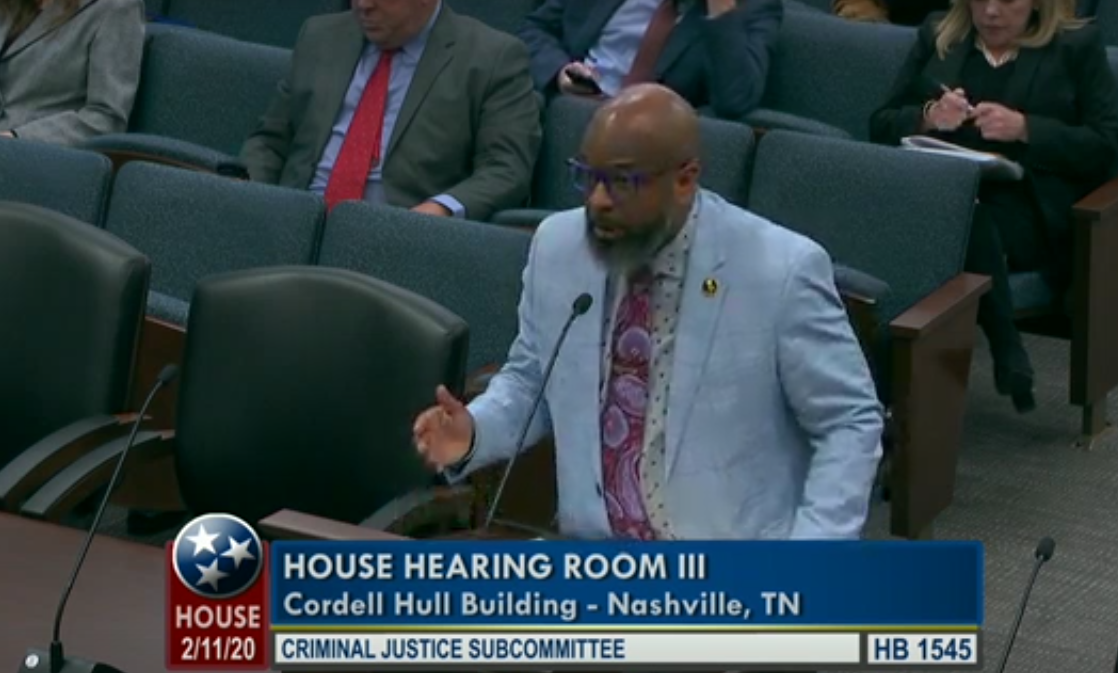
A group of Democratic lawmakers wants a study to be done on the high homicide rate among African Americans in Tennessee.
The bill (HB 1545/SB 1430) is sponsored by six members of the House, including G.A. Hardaway, Jesse Chism, Antonio Parkinson, and London Lamar from Memphis.
Tennessee was recently ranked in the top 10 states for the highest homicide rates among African American victims, based on a study done by the Violence Policy Center (VPC) in May.
The VPC is a nonprofit organization that conducts research, offers public education, and provides the public and policymakers with analysis and information on the issue of violence in America.
Analyzing data from the Federal Bureau of Investigations’ 2016 Supplemental Homicide Report (the most recent data), the VPC found that the national homicide rate for African American victims was more than four times higher than the overall national rate.
In 2016, the national rate was 5.1 homicides per 100,000 people, while the national rate among African Americans was 20.44 per 100,000.
[pullquote-2]
In Tennessee, the rate of homicide among African American victims — 28.4 per 100,000 — surpassed both the overall national rate and the national rate among African Americans.
That trend is reflected in Memphis homicide numbers. In Memphis, African Americans make up 64 percent of the total population, and in 2019, 86.3 percent of all homicide victims here were African American, according to data from the Memphis Police Department. Of the 190 homicide victims here last year, only 26 were non-black.
Black males accounted for the largest percentage of homicide victims here last year, making up a little over 75 percent of all victims.
Lawmakers say these numbers represent a “public health crisis” for the state and are calling for the Tennessee Advisory Commission on Intergovernmental Relations (TACIR) to produce a study on the issue.

Staples
Rep. Rick Staples (D-Knoxville), the bill’s main sponsor, told the House Criminal Justice Subcommittee Tuesday that currently there are statistics available on homicide rates, but there is no data on why African Americans in Tennessee lead the nation as victims of homicide.
“There’s nothing that targets why we lead the nation in that,” Staples said. “So if we could get information on that that is specific and factual like TACIR does, it could give us a lead or a path to follow so we can work in concert to correct this issue.”
The goals of the study, Staples said, would be to gather “solid information” that points to the causes of the high homicide rate among back Tennesseans, and then to determine whether legislative action is necessary to address those causes and what the state and local governments can do to reduce the rate.
According to a draft of the bill, the study would include a historical comparison of the homicide rate among black Tennesseans, as well as possible factors contributing to changes in the rate over time.
The study would also include a comparison of homicide rates among African Americans with that of other demographics in the state, as well as with the rates in neighboring states.
[pullquote-1]
Going further, the study would also look at what state and local initiatives are in place to combat the high homicide rates among black Tennessseans.
“We’re not asking for TACIR to necessarily come up with implementation or corrections,” Staples said. “What we’re asking TACIR is to do a study so that we can look at what we could possibly do as the General Assembly. That’s basically, in a nutshell, what this piece of legislation is doing.”
The bill advanced in the House Criminal Justice Subcommittee Tuesday to be heard by the full Judicial Committee. If the bill passes, TACIR would have until January 31, 2021, to present the report and any findings to the General Assembly.
Rep. Antonio Parkinson, who represents Memphis and sits on TACIR, said, “When they [TACIR] do their research and work on these questions that we have, they will be extremely thorough in what they bring back to us.” If the legislation passes, Parkinson said the study “will answer a lot of questions for us.”